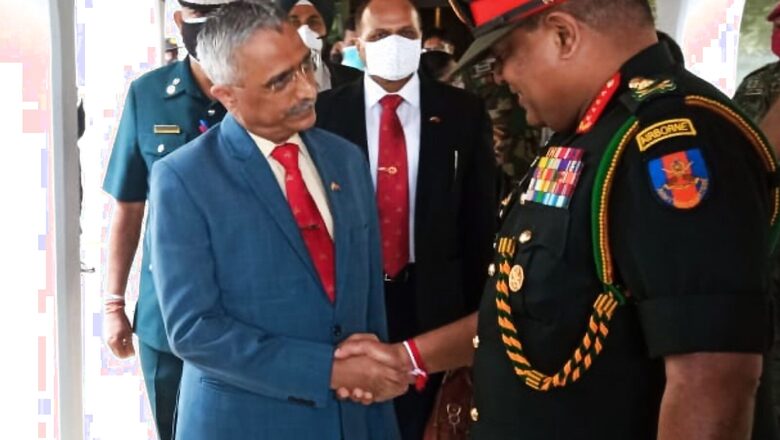
views
“Sri Lanka dumps Chinese fertilizer and imports Nano Nitrogen liquid fertilizer from India,” screamed a Colombo media headline a few days back reflecting the growing exasperation with China’s increasingly high-handed conduct in the island nation.
The news item referred to the soured deal of organic fertilizer imported from China last August, from Qingdao Seawin Biotech Group which had signed a contract for the supply of 96,000 tonnes of organic fertilizer and 3,000 tonnes of powdered form of organic fertilizer. When the Department of Agriculture tested the imported cargo, it was found to contain several harmful bacterial species.
Another sample provided by the company was also found to be contaminated. Following this, the Department banned all imports of fertilizers from China, and the agriculture ministry suspended the $63 million contract awarded to the Chinese company.
As Sri Lanka was facing a severe shortage of fertilizers after the import of chemical fertilizers was banned, India stepped in to speed up the supply of nano fertilizer to Sri Lanka. Sri Lanka went ahead with the import of 3.1 million litres of nano liquid fertilizer from India, which were tested and found to be free of contamination.
The whole episode has irritated China. The Chinese embassy in Colombo condemned the test carried out by Sri Lanka’s National Plant Quarantine Service, which found the presence of Erwinia and other harmful pathogens in the Chinese organic fertilizer samples. Sri Lanka state minister Dayasiri Jayasekara, said that as now we can’t import fertilizer from China, we resorted to getting it from India. “China is questioning us as to why we are not purchasing the fertilizer from them,” he said.
The organic fertilizer episode lays bare the seamier side of Sri Lanka’s close relationship with China. Of course, Prime Minister Mahinda Rajapaksa, addressing the Communist Party of China (CPC) and World Political Parties summit on 8 July 2021, complimented China for never trying “to impose its own political views on the world” and never feeling “the need to manipulate the affairs of other countries.”
ALSO READ | How India Can Win Sri Lanka Back—Start with Not Reacting to Its China Ties
But the real-world behaviour of China with smaller countries has been manipulative and intrusive. A recent Sri Lanka news report in this context headlined: “Canadian Energy Enterprise Accuses China of Hijacking Major Project in Sri Lanka” gives the seamier story of China’s state-owned firms’ conduct in compromising confidentiality agreements which forbade the use of the work products and proprietary information, to their advantage.
Close on the heels of India’s supply of nano nitrogen organic fertilizer to ward off fertilizer crisis, comes the report of Sri Lanka seeking a $500 million credit line from India to pay for its crude oil purchases. It comes in the midst of the severe foreign exchange crunch Sri Lanka is facing. The state-owned oil entity already owes $3 billion to two state-owned banks. In all likelihood, India will accommodate Sri Lanka’s request as oil shortage will have a crippling effect on Sri Lanka’s economy, already reeling under the impact of the COVID-19 pandemic. In this context, Sri Lanka is likely to finalise India’s long-standing offer to develop the oil tank farms for strategic energy reserves in Trincomalee. This issue came up when India’s Foreign Secretary Harsh Vardhan Shringla called upon the President during his three-day visit to Colombo in the first week of October.
Both India and Sri Lanka seem to be keen to ratchet up their relations which had taken some beating in recent times. India’s real-time help in the wake of the container ship X-Press Pearl, carrying 25 tonnes of nitric acid, catching fire off Colombo port on May 19, must have come as a moment of truth to President Gotabaya Rajapaksa on firming up friendly relations with India. He probably had a rethink on the way India was sidelined in his policy priorities.
First came the course-correction he applied to the forgettable episode of discarding trilateral agreement with India and Japan on joint development of the Colombo Eastern Container Terminal. India’s port infrastructure giant Adani Group has obtained 51 per cent stake in a deal signed with Sri Lanka’s John Keells Holdings and Sri Lanka Port Authority to jointly develop the West Container Terminal at the Colombo Port.
Then came the Integrated Country Strategy paper of the newly appointed Sri Lanka High Commissioner to India which had the President’s blessing. It speaks of elevating bilateral relationships to a strategic level, bolstering foreign investments, boosting connectivity and expanding strategic cooperation in defence and Indian Ocean security.
Many of the points in the strategy paper resonate with what Foreign Secretary Harsh Vardhan Shringla had discussed with the President, Prime Minister and Foreign Minister during his Colombo visit. In his meetings, he had underscored the importance India attaches to expeditiously taking forward mutually beneficial projects, including proposals to enhance air and sea connectivity between India and Sri Lanka. He also reiterated India’s position on complete implementation of the provisions under the 14th Amendment to the Constitution, including devolution of powers and holding of provincial elections at the earliest. His visit to Jaffna is a strong reminder of India’s continued interest in the welfare of the Tamil minority.
The Foreign Secretary’s visit was followed a week later by the visit of India’s Army Chief General M.M. Naravane. He met the top leadership to underscore the importance India attaches to expeditiously taking forward mutually beneficial projects. During his meeting with the President, General Naravane said that India “highly expects” the stability of neighbouring countries for regional security. Already, over 1,000 Sri Lanka army officers are trained every year in India. According to the Presidential Media Division, a specially designed training course for 50 Army officers will be provided to Sri Lanka in the near future at the request of the Chief of Defence Staff and the Commander of the Sri Lanka Army. It is interesting to note India-Sri Lanka joint army training exercise Mitra Shakthi was being held during his visit.
In April 2020, External Affairs Minister S. Jaishankar had said the Quad meets India’s aspiration of becoming “a stabilising power”. He called India’s present foreign policy as “India Way” to bring the country’s capacities for global good to provide security and connectivity and firmly dealing with global challenges. India would be a “decider or a shaper” than “abstainer” on issues like climate change and connectivity. To be a stabilising power, India needs to upgrade its relations with Sri Lanka to the strategic level. The moot point is can India do it, in the face of aggressive promotion of Chinese interests, backed by economic and military muscle? India has to, because it has no other option.
Colonel R Hariharan, former MI specialist on South Asia and terrorism, served as the head of intelligence with the Indian Peace Keeping Force in Sri Lanka 1987-90. The views expressed in this article are those of the author and do not represent the stand of this publication.
Read all the Latest News , Breaking News and IPL 2022 Live Updates here.



















Comments
0 comment